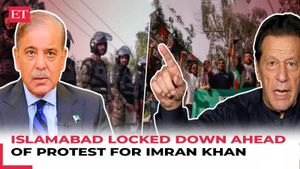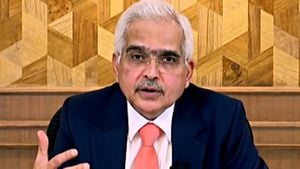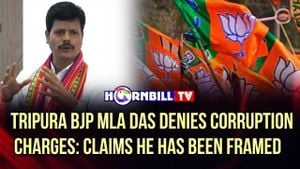The U.S. Supreme Court has recently agreed to take on significant cases involving the nondelegation doctrine, which restricts Congress from outsourcing its legislative responsibilities to federal agencies. This decision has been met with great interest from various sectors, particularly those related to telecommunications and administrative law.
On November 22, 2024, the Court granted certiorari to two cases, FCC v. Consumers’ Research and SHLB Coalition v. Consumers’ Research, both addressing whether Congress and the Federal Communications Commission (FCC) have improperly delegated their powers under the nondelegation doctrine. The crux of these cases concerns fees imposed on telecommunications carriers to fund services aimed at underserved regions, including schools and low-income households.
Historically, the nondelegation doctrine has been largely dormant since the 1930s; it holds the principle established by Article I of the U.S. Constitution which states Congress cannot abdicate its legislation duties. Yet, now it appears the doctrine may regain traction. A notable component at stake is whether Congress unlawfully delegated taxing powers to the FCC, which then authorized the Universal Service Administrative Company (USAC), a private entity, to oversee the financial distribution of these funds underneath its guidance.
Initially established by the Telecommunications Act of 1996, the Universal Service Fund was created to extend affordable telecommunications service to more Americans, especially those who are economically disadvantaged or live in rural areas. This Fund collects fees from providers, typically passed onto consumers, to subsidize services and improve access to technology and education.
The legal challenges surrounding the FCC’s Universal Service Fund have found various outcomes across the judicial systems. While several federal appeals courts previously dismissed challenges to the Fund’s constitutionality, the 5th U.S. Circuit Court of Appeals showcased some dissent, ruling in favor of the challengers and asserting concerns over improper congressional delegation of authority to the FCC, coupled with unauthorized subdelegation to USAC.
This division among the circuits has caught the attention of the Supreme Court, as it signifies a circuit split, where different courts have reached conflicting conclusions on similar legal questions. The decision to hear these cases could signify the Court’s willingness to dismantle federal agency powers, reflecting recent trends observed under the conservative majority headlined by Justices inclined to curb the reach of administrative governance. Should the Justices uphold the nondelegation doctrine vigorously, it could empower future challenges against federal agency actions, giving the courts the authentic leverage to invalidate agency authority it deems improperly delegated.
Will Hild, the Executive Director of Consumers' Research, emphasized the need for accountability over taxpayer money, asserting decisions should be made by elected representatives rather than unelected officials, which resonates with the general sentiment among conservatives seeking to bolster limitations on governmental agencies.
The Court has steered its direction toward regulatory control with earlier rulings already hinting at narrowing the scope of administrative agency interpretations. For example, the unprecedented decision last June held agencies could not defer to their interpretations of unclear statutes, spotlighting the diminishing reliance on the Chevron doctrine, which once allowed agencies broad interpretive powers.
Despite the potential for extensive ramifications, the Court could still sidestep making sweeping rulings on the nondelegation question. It has directed the parties involved to argue whether the cases might be moot based on procedural missteps by the challengers, thereby allowing the Court to dismiss the cases without reaching the merits.
The upcoming oral arguments will likely happen in the spring of 2025, with many experts predicting rulings to emerge by the start of summer. This decision will not only determine the operational procedures within telecommunications regulations but may also echo through the realms of administrative law, influencing how governmental powers are perceived and exercised moving forward.
Observing the broader legislative battle, this judicial exploration reflects the extensive dialogue surrounding the effectiveness and authority of agencies like the FCC—the examination of the nondelegation doctrine has extensive bearings on the future of regulatory authority and agency independence. The outcomes of the consolidated cases are still pending, but they promise to set the course for potential reform within the requisition of legislative powers and management of federal agency responsibilities.



